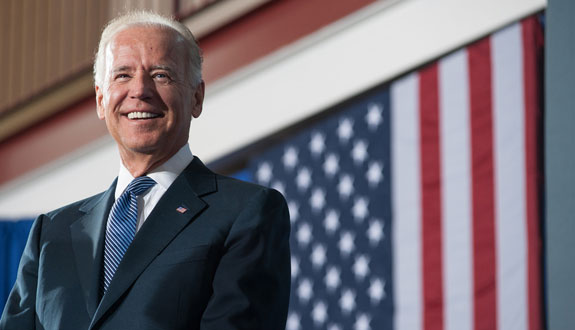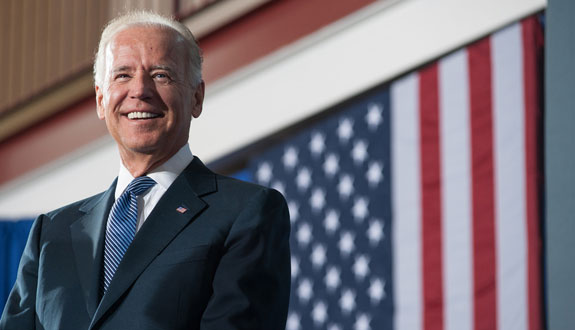LSAT Logical Fallacies From Last Night’s VP Debate
- by
- Oct 13, 2012
- LSAT, Politics
- Reviewed by: Matt Riley


The current presidential campaign has been rife with material for fact-checkers, comedians, and informal logicians, and last night’s vice presidential debate was no exception. Congressman Paul Ryan prepared for the debate by getting jacked, while Vice President Joe Biden underwent emergency surgery to make his smile even bigger. While pundits on the left argue that Biden clearly won on the issues, the right claims that his demeanor was rude and condescending, which voters will hold against him and President Obama.
Rather than focus on who actually won the debate (who cares?!) we should instead be discussing all of the awesome and ridiculous statements made by each candidate. While the debate was full of non-logical fallacies, such as extreme hyperbole (Congressman Ryan claiming that we are “watching on our TV screens…the unraveling of the Obama foreign policy”) and just plain falsehood (VP Biden stating that the intelligence community “had no knowledge” that the U.S. Consulate in Benghazi had not requested additional security), there were also plenty of logical fallacies. Since these are particularly important for us as LSAT students, let’s go over a few of them:
VP Debate LSAT Logical Fallacy #1: Temporal
One of the more memorable moments of the debate was when Vice President Biden, in a comment reminiscent of the 1988 VP debate, repeated the “You sir, are no Jack Kennedy” remark, though not in those exact words. The comment followed Congressman Ryan committing a clear temporal fallacy when he claimed that because both Presidents Kennedy and Reagan had successfully cut taxes to boost economic growth in the past, Romney would also be able to successfully cut taxes to boost economic growth in the future. Vice President Biden may just as well have said, “A flaw in your argument, sir, is that you fail to recognize that just because a particular action had a one outcome in the past, that does not necessarily indicate that a similar situation would have the same outcome in the future.”
Guess it didn’t have the same ring to it.
VP Debate Logical Fallacy #2: Ad Hominem
Ad Hominem is a big one in American politics and was alive and well in last night’s debate. Perhaps the best example came from Vice President Biden who, when asked to respond to his adversary’s specific arguments, repeatedly made the claim that “my friend here thinks that 30 percent of Americans are takers.” While this may be good politics, it is definitely not good logic.
VP Debate Logical Fallacy #3: Sampling
Sampling was undoubtedly the most prevalent LSAT logical fallacy last night, and it fit in very well alongside the hyperbole, falsehoods, and general ‘malarkey’. Each side consistently threw statistics at each other—a billion dollars in spending here, a trillion dollars in tax cuts there—in such a manner that even the most sophisticated economist would have been baffled. The debate was so full of sampling fallacies that listing them all would fill another ten pages, though I will say that Congressman Ryan provided what may have been the best example when he stated that “6 studies” (several of them by conservative think tanks) show that Governor Romney’s tax plan would boost the economy without hurting the middle class. I’m pretty sure that research centers funded by conservative interest groups can be safely considered ‘biased’.
Search the Blog

Free LSAT Practice Account
Sign up for a free Blueprint LSAT account and get access to a free trial of the Self-Paced Course and a free practice LSAT with a detailed score report, mind-blowing analytics, and explanatory videos.
Learn More
Popular Posts
-
logic games Game Over: LSAC Says Farewell to Logic Games
-
General LSAT Advice How to Get a 180 on the LSAT
-
Entertainment Revisiting Elle's LSAT Journey from Legally Blonde








